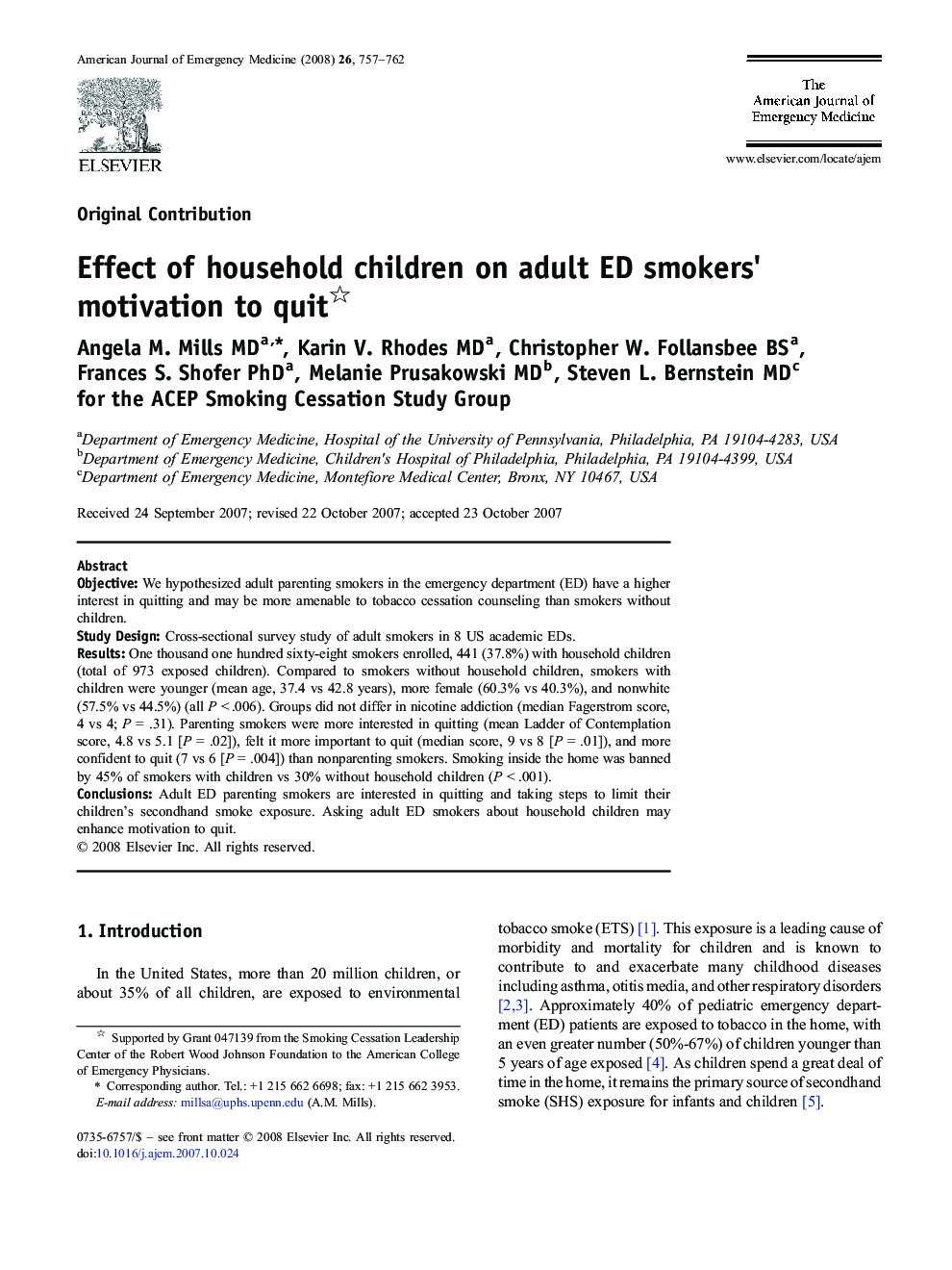| Article ID | Journal | Published Year | Pages | File Type |
|---|---|---|---|---|
| 3227212 | The American Journal of Emergency Medicine | 2008 | 6 Pages |
ObjectiveWe hypothesized adult parenting smokers in the emergency department (ED) have a higher interest in quitting and may be more amenable to tobacco cessation counseling than smokers without children.Study DesignCross-sectional survey study of adult smokers in 8 US academic EDs.ResultsOne thousand one hundred sixty-eight smokers enrolled, 441 (37.8%) with household children (total of 973 exposed children). Compared to smokers without household children, smokers with children were younger (mean age, 37.4 vs 42.8 years), more female (60.3% vs 40.3%), and nonwhite (57.5% vs 44.5%) (all P < .006). Groups did not differ in nicotine addiction (median Fagerstrom score, 4 vs 4; P = .31). Parenting smokers were more interested in quitting (mean Ladder of Contemplation score, 4.8 vs 5.1 [P = .02]), felt it more important to quit (median score, 9 vs 8 [P = .01]), and more confident to quit (7 vs 6 [P = .004]) than nonparenting smokers. Smoking inside the home was banned by 45% of smokers with children vs 30% without household children (P < .001).ConclusionsAdult ED parenting smokers are interested in quitting and taking steps to limit their children's secondhand smoke exposure. Asking adult ED smokers about household children may enhance motivation to quit.
